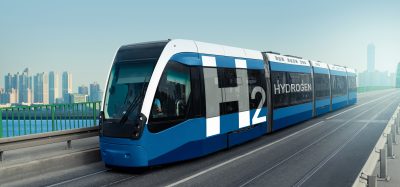High-speed rail’s role in transforming travel recognised in industry report
Posted: 2 March 2021 | Global Railway Review | No comments yet
Published by Britain’s High Speed Rail Group (HSRG), the report examines the benefits, opportunities and extent of international high-speed rail, with contributions drawn from across the infrastructure industry.


The ‘International High Speed Rail Voices’ report published by High Speed Rail Group (HSRG) demonstrates the transformational role high-speed rail is playing in revolutionising travel across the globe, driving policy makers’ economic and environmental decisions, whilst creating international links that will become ever more important in our increasingly globalised world.
The report serves as a reminder that amongst a global push for more and expanded high-speed rail services, the UK must keep pace with its own investment to create a truly national high-speed network.
International High Speed Rail Voices examines the benefits, opportunities and extent of international high-speed rail, with contributions drawn from across the infrastructure industry. Countries such as France are shown to be investing heavily in high-speed rail as part of net zero efforts, with government pandemic support for Air France predicated on domestic journeys being undertaken by high-speed rail not planes. Similarly, the new Biden administration in the U.S. has made clear that investment in high-speed rail will be a central tenet of its climate agenda.
The world’s leading high-speed nations, China and Spain, view high-speed rail as much more than simply a transport network; it is seen as strengthening connections, and in doing so bringing cultures and countries together. These and other leading high-speed countries have used the railway as both an economic driver and a foundation for national ties.
By implication, the report demonstrates the UK would be left behind were it not to push ahead with HS2 (and beyond) to create a truly national high-speed network in the years ahead.
Featuring contributions from Hitachi Rail, High Speed 1 (HS1), Thales, Mott MacDonald, Italferr, Siemens Mobility, Railway Industry Association (RIA) and the University of Birmingham’s Centre for Railway Research and Education (BCRRE), the report offers analysis on the impact of high-speed rail internationally across a number of key themes:
Bringing countries together
High-speed rail is providing transport spines for countries and in so doing reshaping economic geographies and helping build and stimulate both regions and national cohesion.
High-speed rail as a means of delivering modal shift and net zero
Transport accounts for around a fifth of global carbon emissions, and as such decarbonisation of the sector is critical to net zero goals. To achieve this, there must be modal shift from road and aviation to electrified railways, including highspeed rail.
International services
With the growth of national high-speed networks, international connections are expanding too as high speed rail continues to make rail more attractive and provides an alternative to flying for long distances and intercountry travel.
Innovation in the high-speed rail market
New technologies are being deployed to bring forward new high-speed rail routes, extend and upgrade existing networks and improve the passenger experience.
High-speed rail and COVID-19
The COVID-19 pandemic has had a significant impact on high-speed rail, but with trains already among the safest ways to travel, new steps entrenching that safety and rail’s increasing popularity mean that high-speed rail schemes and services are set to expand.
Commenting on the report, a HSRG spokesperson said: “The report makes clear that high-speed rail has been embraced by countries around the world, and this is only set to increase in the years ahead. Domestic criticisms of the UK’s growing high-speed network are in stark contrast to our European neighbours and beyond, who recognise the inherent economic, environmental and societal benefits brought about by such programmes. As the UK considers the future of its own rail network, including high-speed, through the upcoming Integrated Rail Plan, it is of the utmost importance that the many benefits of high-speed rail as attested to in this report are born in mind.”







